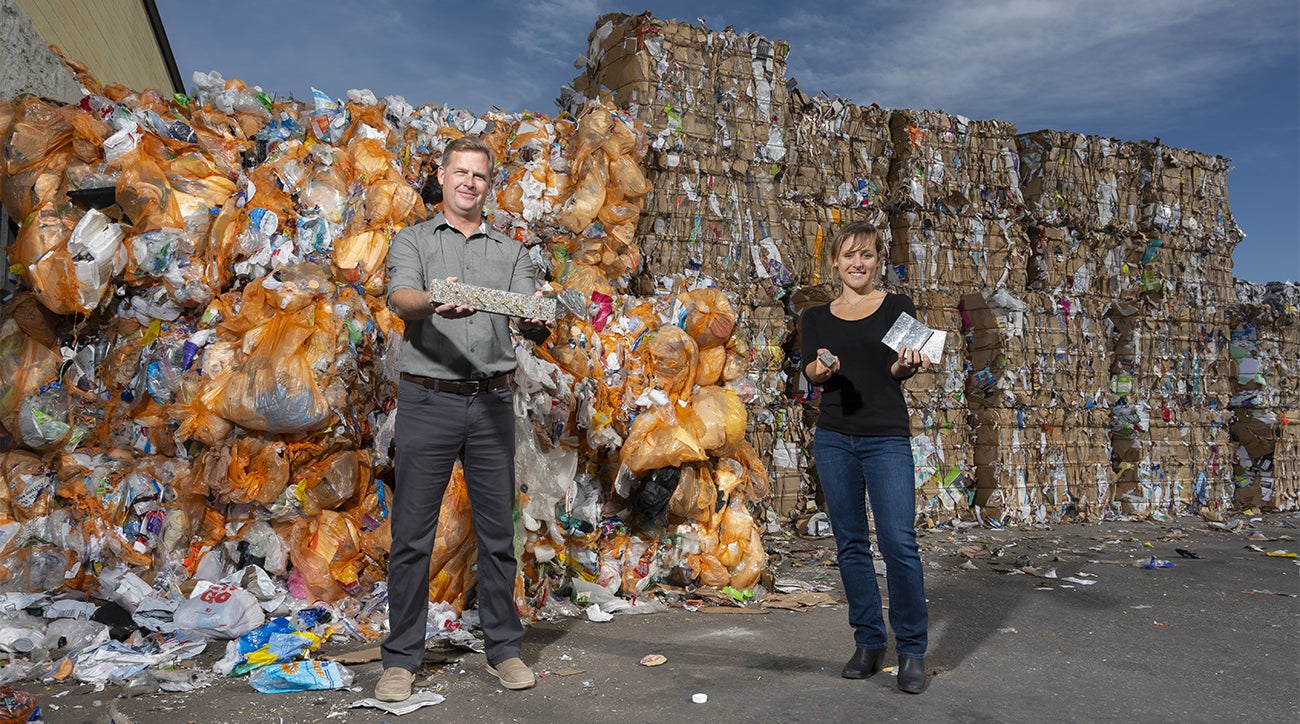Recycling may seem simple at face value: Drop your empty milk jugs, soda bottles, and cream cheese containers into a bin and put it on the curb with your trash. The recycling truck comes, and you see all that plastic again in the 80%-post-consumer-material cup for your next iced coffee.
The reality of recycling is not so straightforward. In the United States, seven types of plastic are acceptable for recycling and they all have to be processed separately. In some cases, even the same types of plastic can’t be recycled together due to differences in molding and refining. Faculty and student researchers at Boise State’s Micron School of Materials Science Engineering are looking for ways to eliminate the need to separate plastics before processing.
Professor Scott Phillips and his team of graduate and undergraduate students are developing a method that not only combines multiple types of plastic but creates a new post-consumer material.

Phillips described the project this way: “We want everything in your orange Hefty EnergyBags, and we want to turn it all into a new kind of plastic. Ideally, we’ll expand and include everything in your blue bin, too. This area of research is a rich opportunity to change the way the world works.”
When it comes to recycling plastic, two main methods are currently in use: mechanical recycling, where plastics are cleaned, cut or ground up and melted; and chemical recycling, where plastics are broken down into their smallest chemical parts.
The researchers’ method, which works at lower temperatures than current recycling methods, combines shredded “trash” plastic with a waste binding agent, then presses the mixture into sheets of ready-to-use material. The procedure takes just a few hours from start to finish in the laboratory, but can be much faster in an industrial setting with the help of automated equipment. This new material could one day be used in everything from construction components to take-out containers. Consumers might even see it in their mobile phone cases.
Terra Miller-Cassman, from Snoqualmie, Washington, is studying towards a master’s in materials science and engineering and working with Phillips. She wants to help shift the mindset about the possibilities for plastic waste.
The project, she said, has been “an opportunity to apply fundamental materials science knowledge for real and immediate impact.”
“Along with technical skills relevant for engineering, manufacturing, or materials science industries, we are learning to brainstorm and develop new products and processes that translate across many different job positions after graduation.”
Terra Miller-Cassman, graduate student
